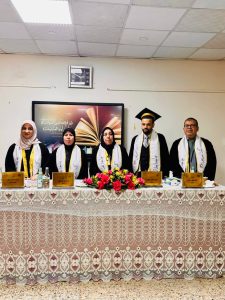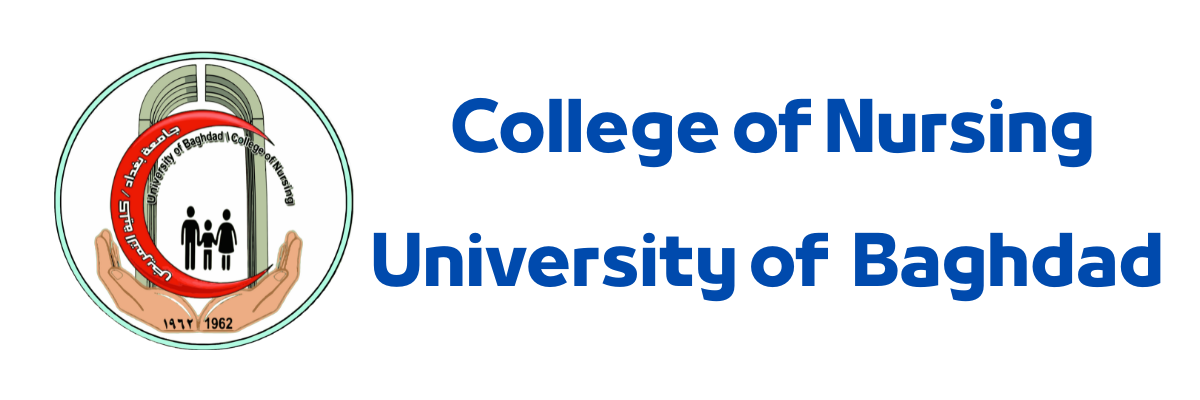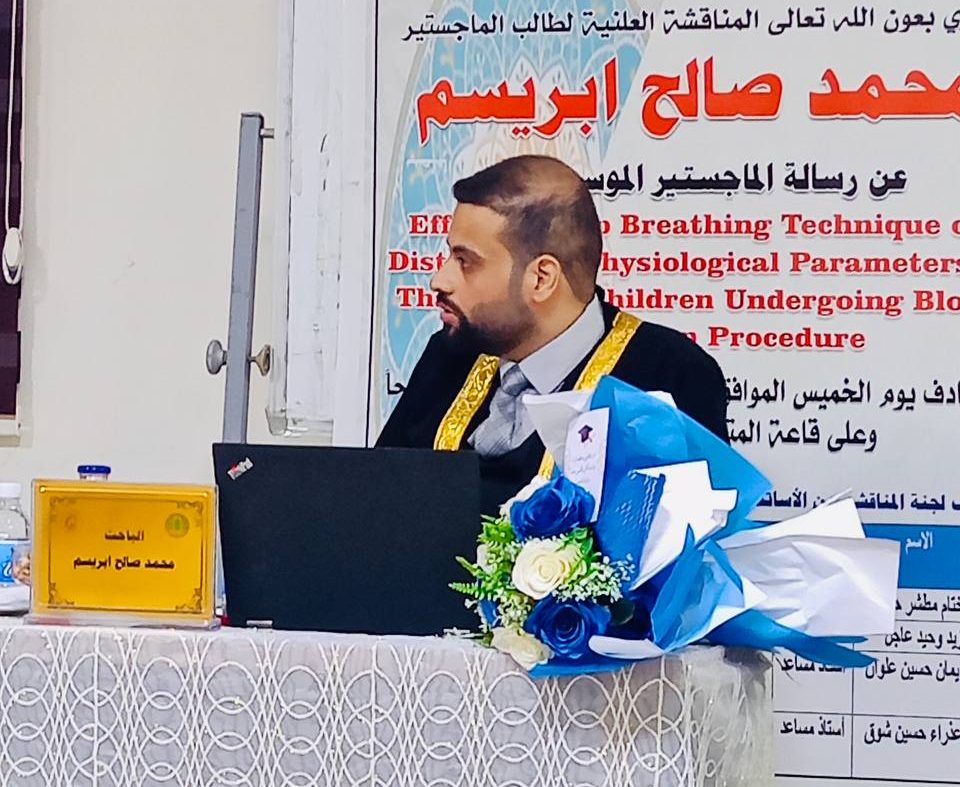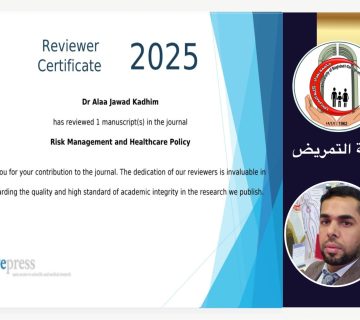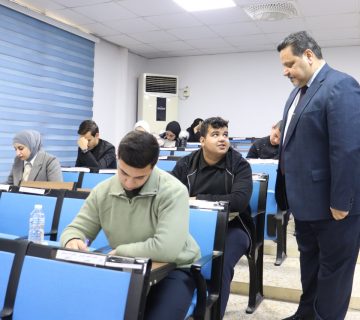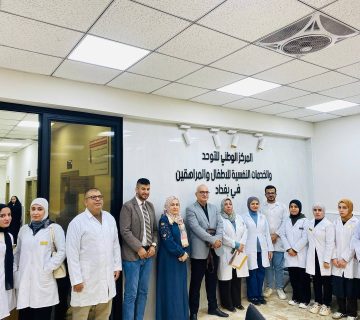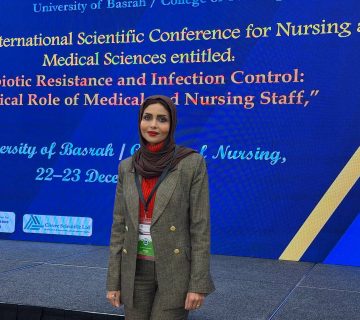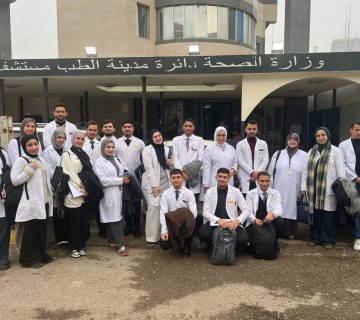The College of Nursing at Baghdad University discussed a master’s thesis entitled “The effect of deep breathing technique on severity and physiological measures in thalassemic children undergoing blood transfusion” by researcher Mohammed Saleh Abrisim under the supervision of Assistant Professor Dr. Athra Hussein Shuq in the Faculty’s Graduate Studies Hall.
The study aimed to evaluate the effect of this technique on physiological parameters and distress levels in children with thalassemia receiving blood transfusions, as well as to explore any relationship between their demographic and social data and the effect of deep breathing.
The results showed a significant improvement in most physiological parameters and reduced levels of distress in the children after the application of the deep breathing technique. Based on these promising results, the study recommended integrating deep breathing techniques into routine nursing care, while teaching children with thalassemia how to apply them multiple times during blood transfusions. This integration would enhance physiologic function and alleviate the distress experienced by these children.
The adoption of these simple and effective techniques not only directly contributes to improving the quality of life of children with thalassemia, but also aligns with the principles of sustainable development, as exemplified by Goal 3: Good Health. This study contributes to building healthier and more resilient communities. It also highlights the importance of applied scientific research in finding innovative and sustainable solutions to chronic health challenges.
